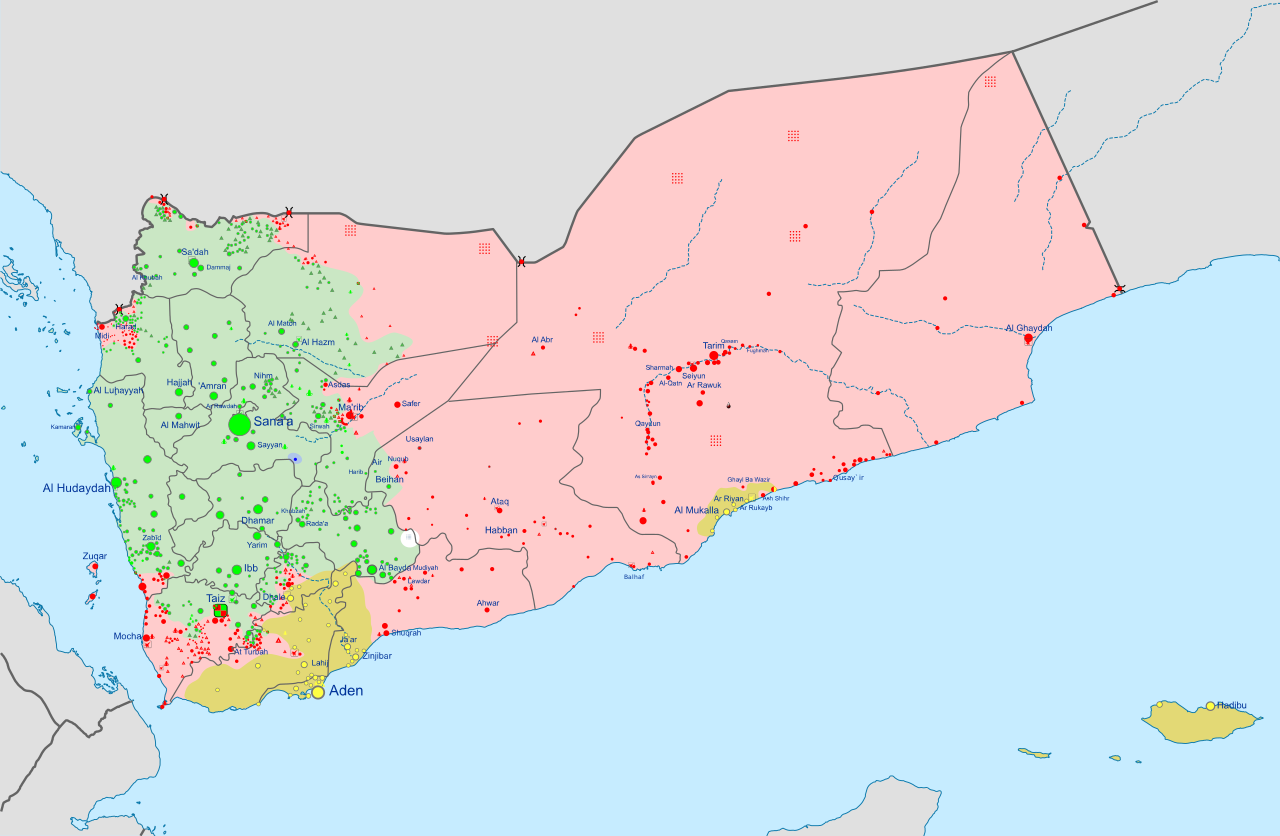
The War in Yemen: Time is Running Out for the Saudis
On January 21, 2022 the Saudi-led coalition in Yemen bombed a detention center in the Houthi rebel heartland of Saada killing 70 people. The U.N Secretary-General Antonio Guterres condemned air strikes by a Saudi-led coalition and called for effective and transparent investigation.The bombing comes at a time of increased US scrutiny towards it’s weapon sales with Saudi Arabia as a result of the war. The U.S position on the Yemen war is complicated. Since 2015, the US has supported the coalition’s effort against the Houthis. However, Washington has dialed down the support following outrage over civilian death and other actions by the Saudi and UAE military. Throughout the past year, the White House has continued authorizing weapons sales to the Kingdom, despite opposition from some lawmakers, however the Biden administration halted the sale of offensive weapons to the Kingdom. In response to the recent escalation, the Biden administration apparently has doubled down on support to the coalition, announcing the sale of additional fighter aircraft to the UAE.
The armed conflict in Yemen began in 2011, when parts of the Yemenite population rose against President Ali Abdullah Saleh, who has ruled Yemen for 33 years. State security forces and pro-government assailants killed at least 225 protesters and bystanders during a largely peaceful demonstration. The protests forced Saleh to hand over power to his deputy Abd-Rabbu Mansour Hadi, for a two-year period as part of the Gulf Cooperation Council , which called for Saleh’s immunity and for the opposition to join a coalition with his ruling party. As president, Mr. Hadi struggled to deal with a variety of problems, including attacks by jihadists, a separist movement in the south, as well corruption, unemployment and food insecurity. The Houthi movement known as Ansar Allah (Partisans of God) took advantage of the new president’s weakness, and the civil war intensified in 2015 when Houthi Shiite rebels with links to Iran and a history of rising up against the Sunni government- took control of Yemen.
The Saudi-led coalition intervened in Yemen’s civil war in March 2015, to halt the advance of the Houthis on behalf of the internationally recognized Yemeni government. The coalition has backed Yemeni ground forces with air strikes and a blockade, both of which have been criticized by human rights defenders. The parties to the conflict have violated international humanitarian law repeatedly, while the number of casualties continues to rise, and millions are facing famine. The UN World Food Program (WFP) warns of the impact of funding gaps, with fuel prices increasing over the past year and food prices doubling in that same period. The escalation of Conflict in Ukraine will likely further increase the prices and especially grains in the import-dependent country. The U.N Office for the Coordination of Humanitarian Affairs (OCHA) estimates that the war has so far caused the deaths of nearly a quarter-million people. In 2016, the Security Council adopted Resolution (2216) and imposed sanctions against some leaders of the Houthi group and forces loyal to the late President Ali Abdullah Saleh. Eleven countries voted in favor and four abstentions; the resolution describes the Houthis as a “terrorist group” and condemned the cross-border attacks launched by the Houthi group including those targeting Saudi Arabia.
The recent Houthi attacks on Saudi Arabia shed light on the latest developments in the Yemeni war. The Houthis have opened another front by targeting the industrial zones airport construction sites near Al-Dhafra air base in Abu Dhabi. The development of Houthi drones and ballistic missiles , have underscored their capacity to hit targets in the Emirates, and since taking control of Sanaa Houthi forces launched unmanned aerial vehicles (UAVs), against the Saudi-led coalition.The Saudi-led coalition has retaliated by intensifying air raids on Houthi-held parts of northern Yemen with thousands of people being killed directly or indirectly. The major escalation by the Saudi-led coalition has led to deadly attacks on civilians and blockades.The UAE support for the Southern Transitional Council (STC) and the joint forces militias has benefitted the Houthis Interest, especially in the fight for Marib. The limited military effectiveness of the Saudi-led coalition is obvious when the spokesperson for the Saudi coalition used footage from a documentary about the invasion of Iraq war film as evidence to show Iran ballistic missiles being smuggled into Yemen at the city of Hodeidah. Later on the spokesperson apologized for using the fake Yemen video, saying it was a sourcing error. As a result the Hadi government has questioned the UAE’s approach to Yemen’s war, and its role in the conflict is a question of considerable significance for the Houthis strategic aims. As the war continues and questions are raised with more urgency about the military campaign of Saudi Arabia and its allies in Yemen, the Saudis will come to understand that the conflict will end one way or another, either through meeting their military objectives or being persuaded through diplomatic pressure to discard them.
